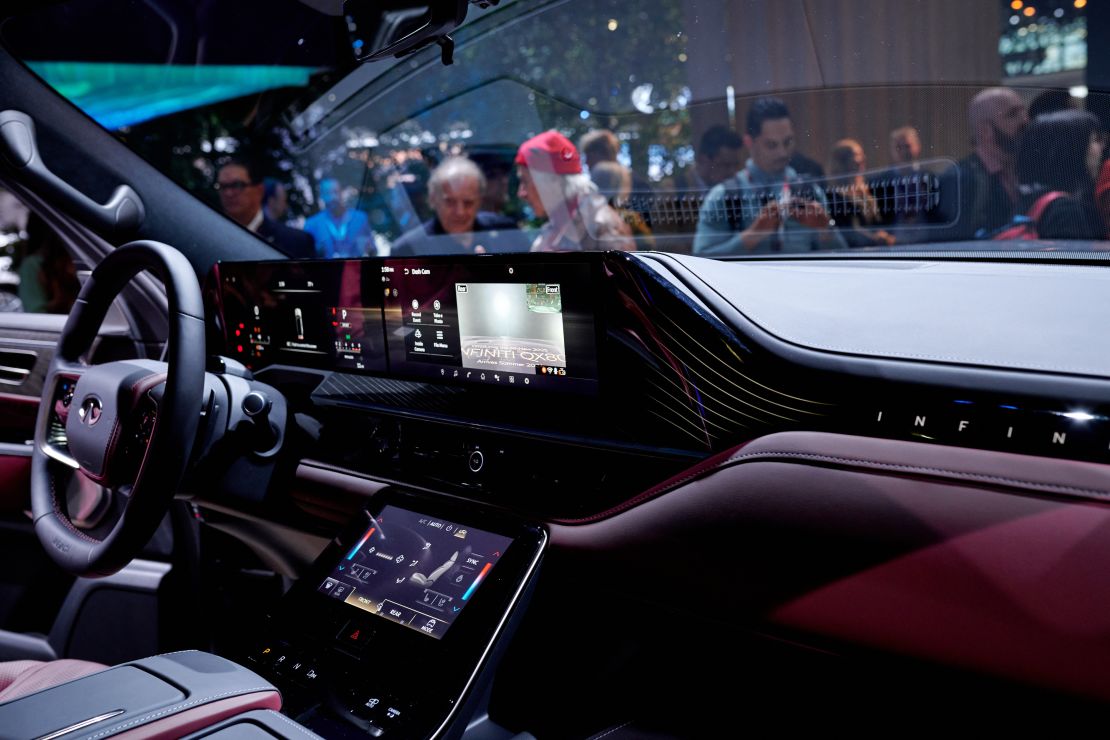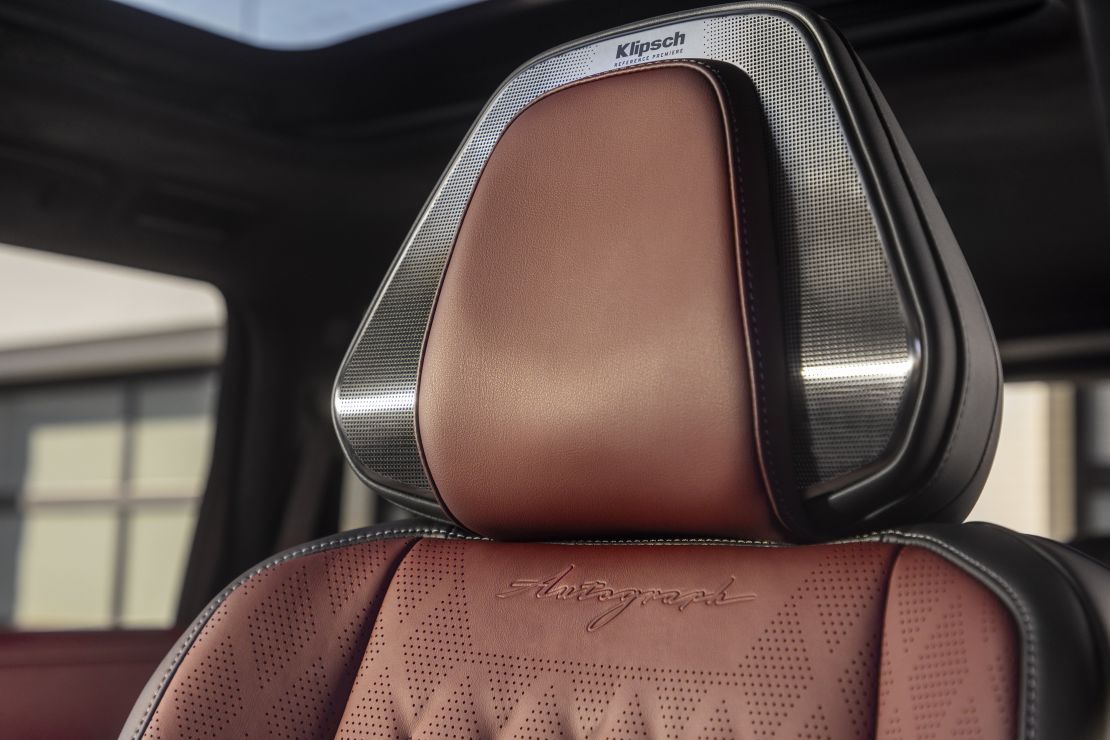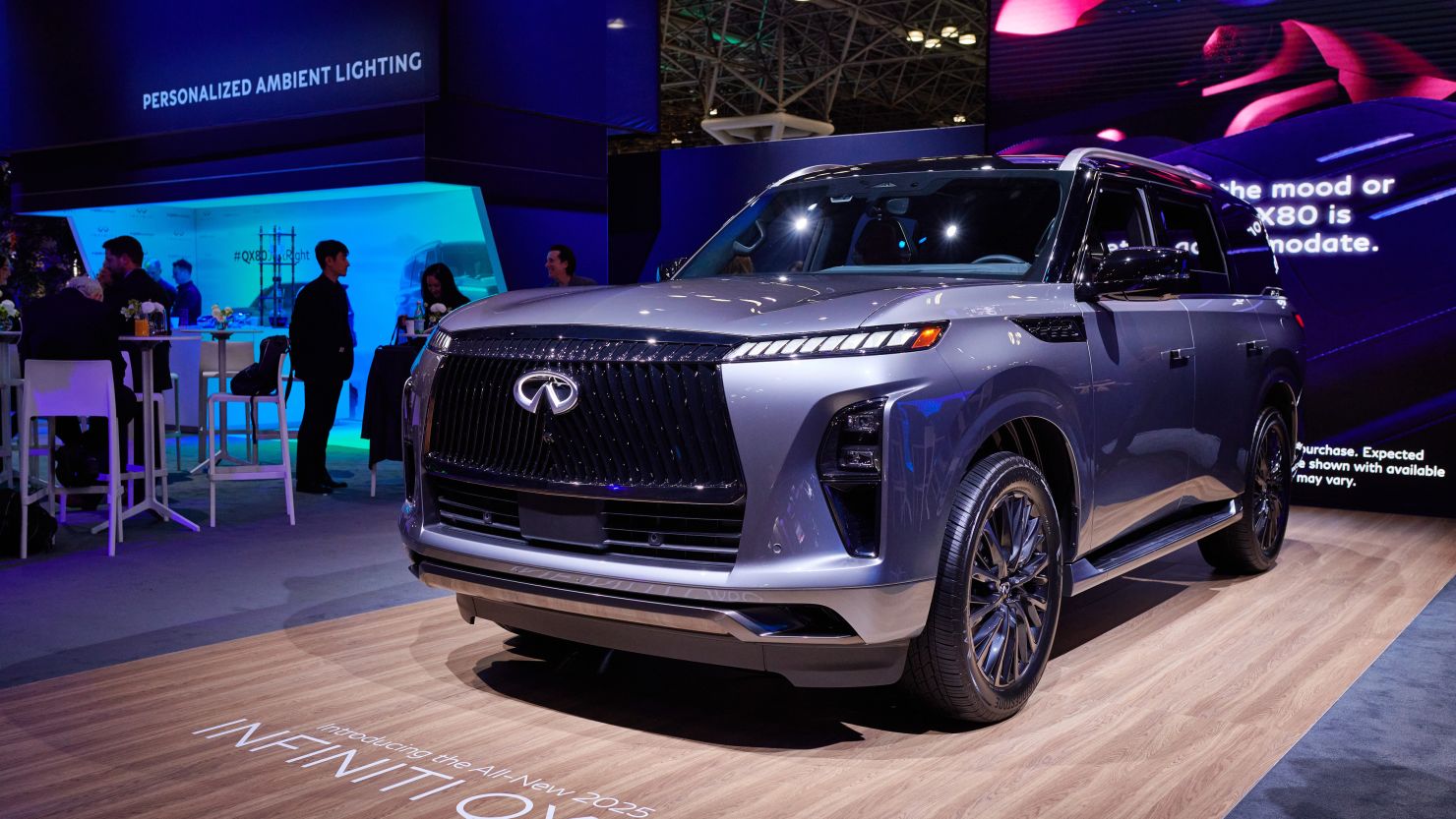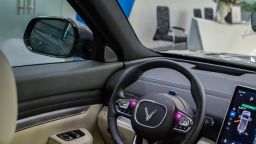It can be awkward to take a phone call while you’re driving and your family is in the car with you. If you’re listening to music it turns off and everyone has to stop and listen to whatever someone on the phone wants to tell you.
Infiniti, Nissan’s luxury vehicle division, just revealed a feature in its new full-sized SUV that can allow everyone else in the vehicle to keep listening to whatever they want while the driver takes a phone call and no headphones are needed. Only the driver can hear the call and the person on the other end of the call can’t hear the music playing in the SUV.
It’s the latest trick in the increasingly competitive world of luxury car sound systems. These days, there’s almost no luxury car company that doesn’t play up its high-end audio system with brands like Burmeister in Mercedes-Benz, McIntosh in the opulent Jeep Grand Wagoneer SUV and Bang & Olufson in Bentley and Genesis cars, among others. For Klipsch, famous for its top-end hand-made speakers, this is only the brand’s second appearance in a vehicle. The $87,000 Ram Tungsten luxury pickup has a Klipsch stereo as standard equipment but even it doesn’t have the Infiniti’s high-tech sound isolation system.
The system in the QX80, developed by Infiniti along with Panasonic Automotive and Klipsch, works through a combination of clever speaker placement and sound canceling technology. The driver and front passenger seat both have speakers mounted in the headrest. That’s not a new idea, but headrest speakers are usually found in convertibles where music, phone calls and navigation instructions have to overcome buffeting wind noise. They’re not usually found in large, quiet luxury vehicles like the Infiniti QX80.
Sound canceling technology, in simpler forms, also isn’t new. It generally works by using speakers to create off-setting sound waves to deaden unwanted sounds. If you imagine sound waves as a line going up and down then imagine overlaying that with a second line that goes up and down in exactly opposite directions, you would end up with, essentially, a flat band. In other words, no sound.

Sound canceling in headphones and car stereos is usually used to wash out continuous, droning background sounds like engine noise. It’s much harder with sounds like music, which changes a lot from moment to moment.
Instead of just relying on microphones to pick up sounds from the air, the optional Klipsch stereo in the 2025 QX80 reads the digital music track that’s being played – as it does to play it, anyway – and can use that to create offsetting sound waves from speakers around the driver’s seat. That creates a quiet bubble around the driver so a phone call or navigation prompts coming through the headrest speakers can be heard only by the driver while others in the vehicle can listen to music at full volume. Meanwhile, the person on the other end of the phone call won’t hear the music at all. For them, it will be just like talking to someone in a quiet room.
The redesigned QX80 won’t go on sale until next year, so I tested the system in a QX80 parked inside a building in Manhattan. A party with a live singer nearby made for a fairly noisy environment outside the SUV.
I sat in the passenger seat of the new SUV while Panasonic executive Tom Dunn took a phone call from the driver’s seat. Pop music was playing on the stereo. I could hear Dunn talking but the voice on the other end of the phone came through, at first, as just an intermittent quiet buzz. Then Dunn turned down the call volume slightly and the other voice disappeared altogether, covered up by country music.
Then I stepped out of the SUV and walked to where an Infiniti spokesman was on the phone about 20 feet away. I took his phone and talked to Dunn. I could hear Dunn talking to me but not the music that was still playing in the car.

Earlier in the demonstration, I’d already taken a call from the driver’s seat while music was playing, but I had figured that was, relatively speaking, the easy part. I had to trust Dunn, who was then in the passenger seat, to tell me he couldn’t hear the person calling me. It was much weirder to later be in the passenger seat and to not be able to hear the call. It was positively baffling to be on the phone outside and to not hear the music that I knew was playing inside the vehicle.
The call-masking feature only works if music is playing on the stereo. If there’s no music playing other people in the SUV will still have to listen to your call but it will be quieter than in most other vehicles.
And, regardless, everyone will still have to listen to the driver talking. But, if your call involves anything embarrassing, you can just make sure to always just answer “Yes” and “No” to everything. Your secrets will be safe.










